Climate Injustice : caused by 1%, paid by 99%
Just one percent of companies, the Carbon Majors, are behind most global greenhouse gas emissions, while ninety nine percent of people suffer the impacts.
Since the Industrial Revolution, 122 of these companies have emitted over 1,421 gigatons of CO2 equivalent, causing extreme weather and heat waves worldwide. They shift the costs of damage onto society, making the Polluter Pays Principle essential to hold them accountable.
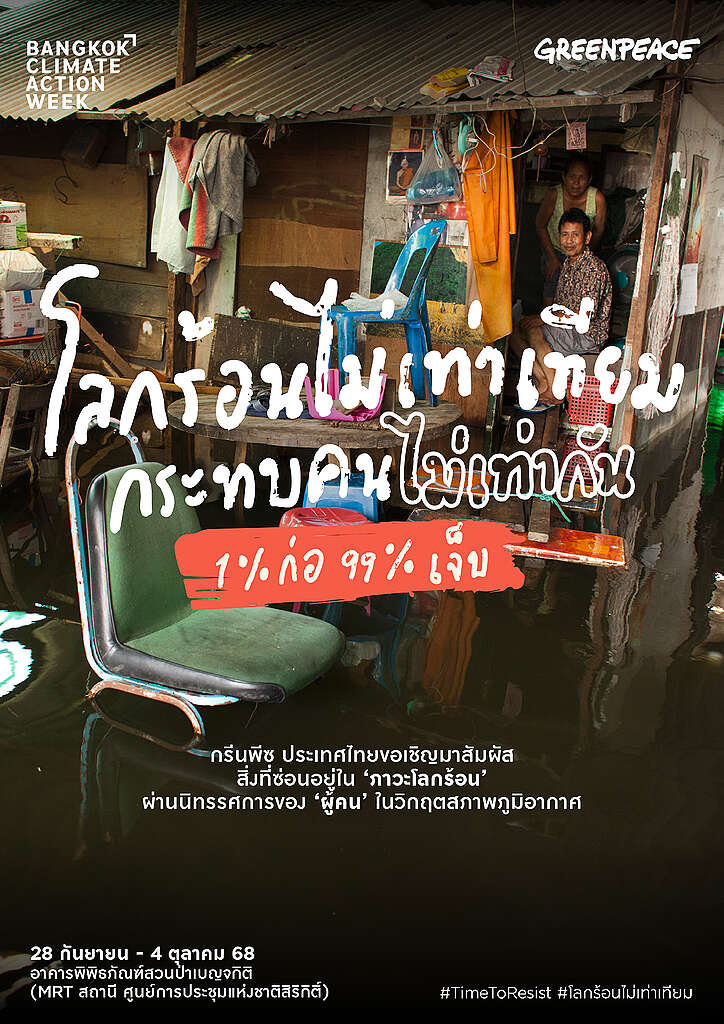
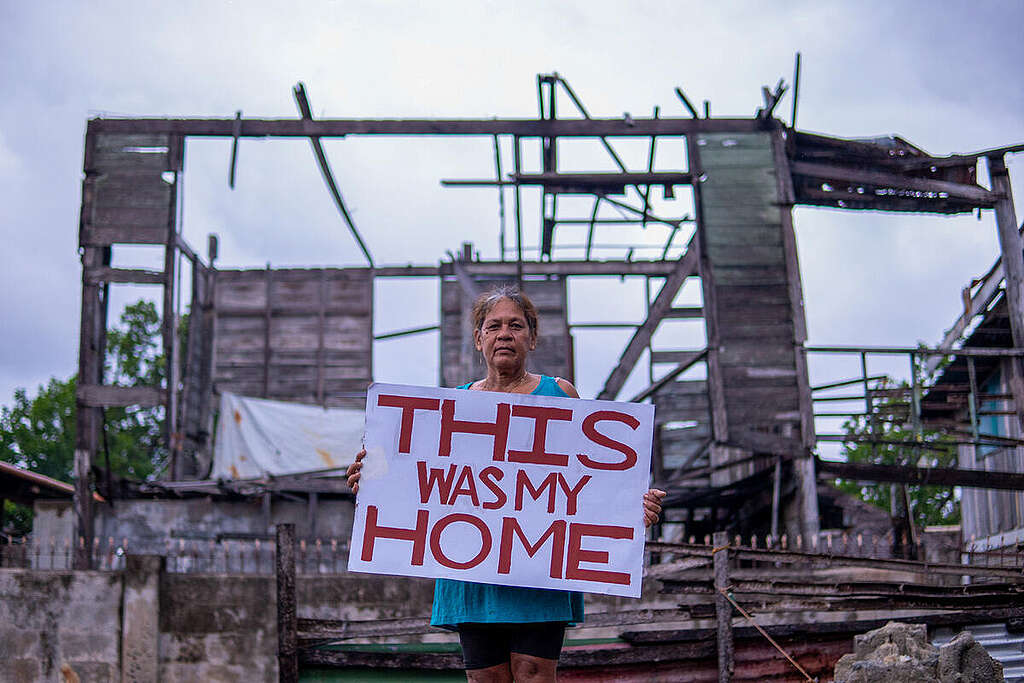
Unequal Emissions, Unequal Impacts
The inability to control national greenhouse gas (GHG) emissions, combined with economic disparities in responding to the climate crisis, has led to human rights violations both within and across national borders and further deepens social inequality.
According to the Intergovernmental Panel on Climate Change (IPCC), individuals with higher incomes generate significantly more GHG emissions than those with lower incomes. Experts agree that as climate change gets worse, these inequalities will only intensify.
Which country will be the most affected by climate change?
Thailand ranks among the countries most severely affected by climate change. Across all regions, the country regularly faces increasingly frequent and intense natural disasters including floods, landslides, to extreme heat leading to loss of life and significant damage each year due to ineffective government management.
Despite experiencing the impacts of climate change, wealthier European countries are better positioned to mitigate these effects as supported by their stronger economies and more effective systems of governance.
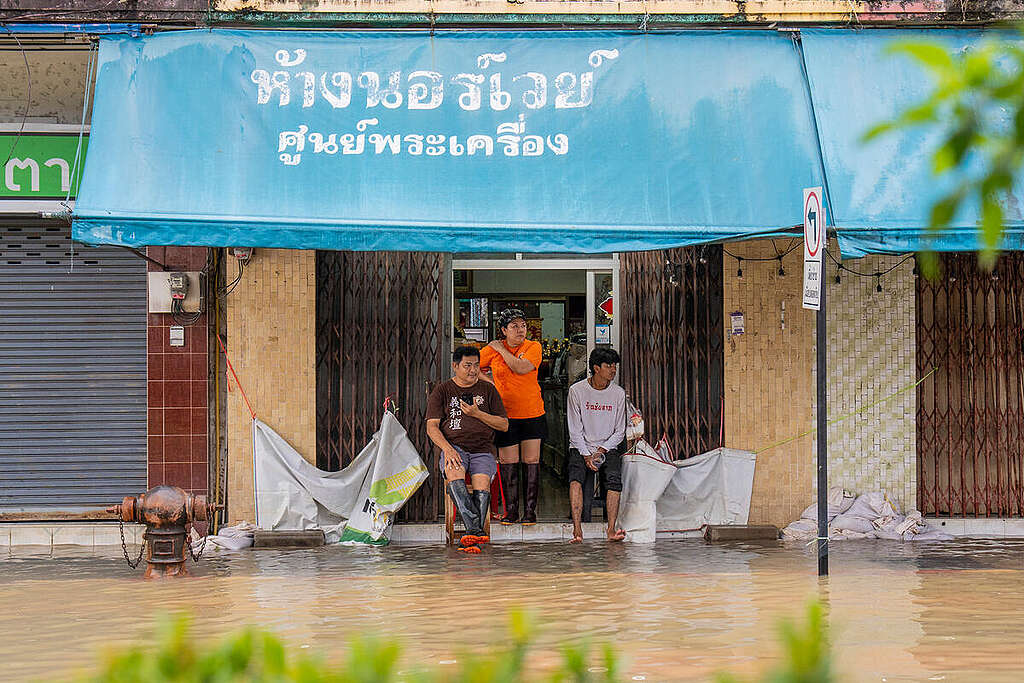
Who is responsible? Demanding Fair Accountability
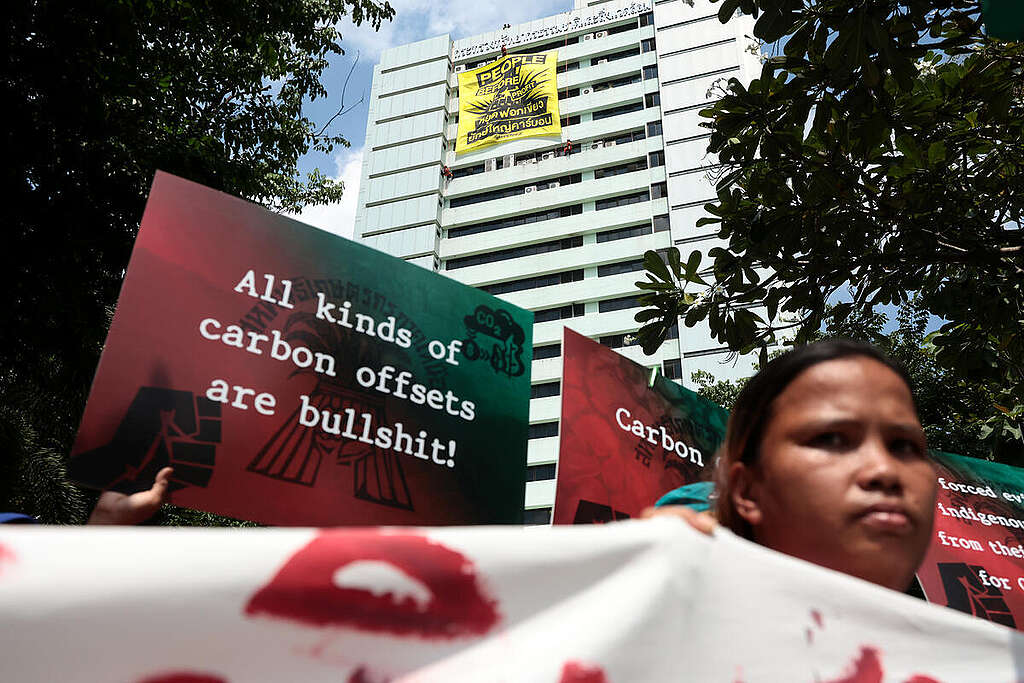
Greenpeace Thailand activists unfurl a 10×10 meter banner reading ‘People Before Profit. Stop Big Corporations’ Greenwashing’ at the Ministry of Natural Resources and Environment The activity is held ahead of the 2024 United Nations Biodiversity Conference (CBD COP16) and The 29th Conference of the Parties (COP29).
1. Corporate Accountability
The climate crisis is not an accident but the result of human actions, particularly from just 100 major companies responsible for 71% of global emissions. They must be legally held accountable for environmental and human rights impacts.
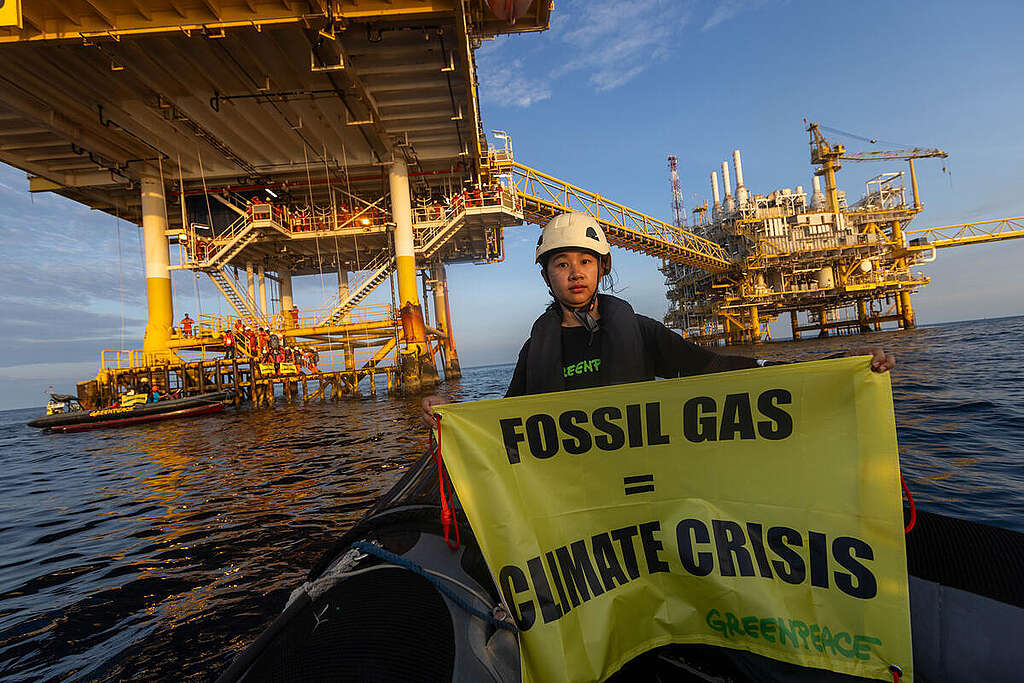
- Transparency and Remedy: Establish mechanisms to monitor, verify, and reduce emissions in line with the 1.5°C target
- Polluter Pays Principle (PPP): Ensure those least responsible should not bear the heaviest burdens, fair compensation must be ensured
- Expose Delay Tactics: Counter greenwashing, misinformation, lobbying, and SLAPP lawsuits that obstruct climate action
2. People-centered Solutions
Climate solutions must be rooted in human rights and justice.
- Secure access to justice and remedies for affected groups
- Integrate human rights into all environmental policies with transparent reporting
- Protect vulnerable groups such as climate refugees and human rights defenders
- Guarantee the right to a safe environment and climate justice in the Constitution, to secure people’s rights to live safely amid the climate crisis.
- The state must enable local communities and Indigenous peoples to participate in policymaking and support them in line with the approach of Indigenous Peoples and Local Communities (IPLCs) under the Convention on Biological Diversity (CBD), Article 8(j).
- Conduct comprehensive environmental and human rights impact assessments, including gender dimensions
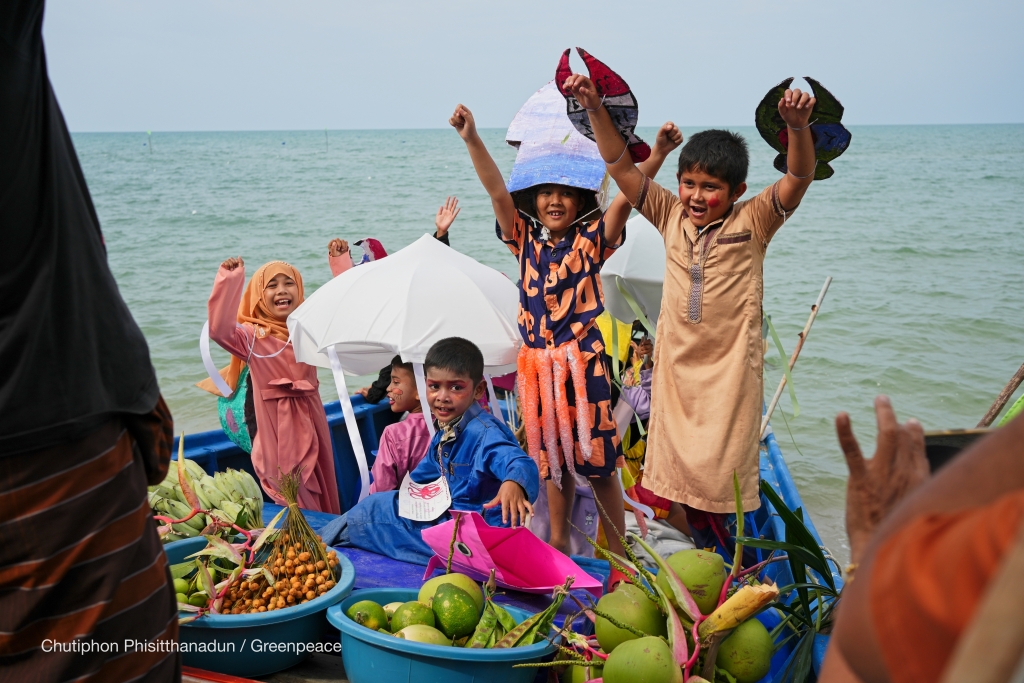
3. A Just and Clean Energy Transition
Real change is not only about fuel substitution but transforming the entire energy paradigm.
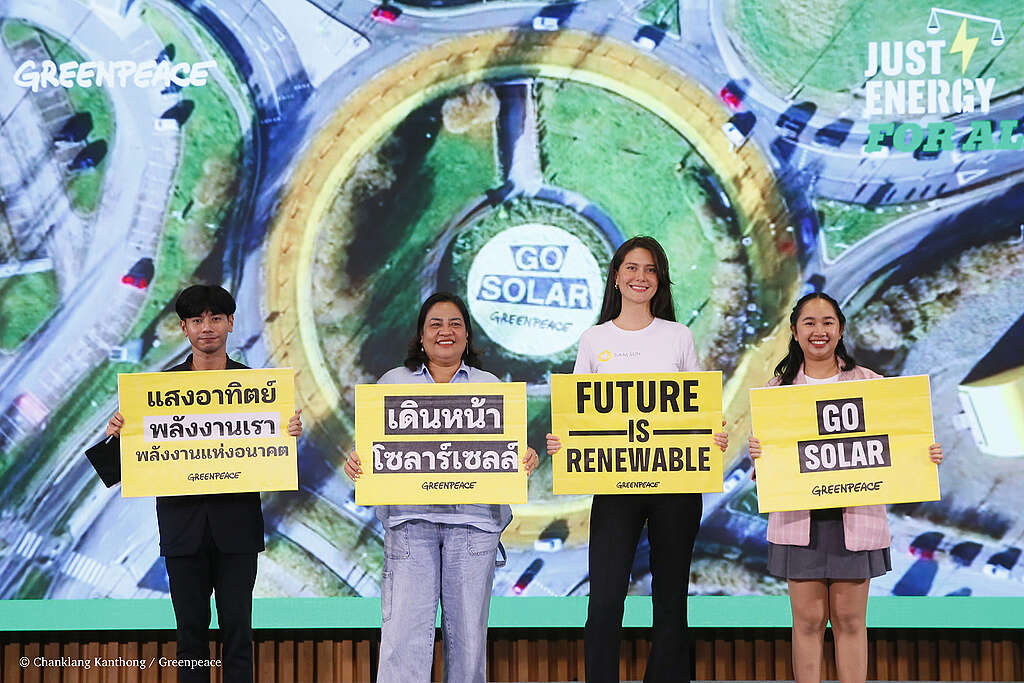
- End fossil fuel subsidies and investments, and accelerate decentralized renewable energy
- Ensure affordable clean energy access for all, particularly vulnerable groups
- Promote energy democracy, enabling communities to participate in decision-making and ownership.
- Balance economic, social, and justice considerations to secure a clean and sustainable future for all.
